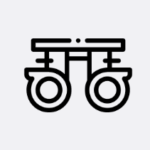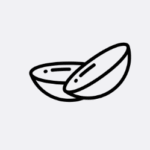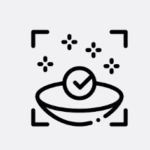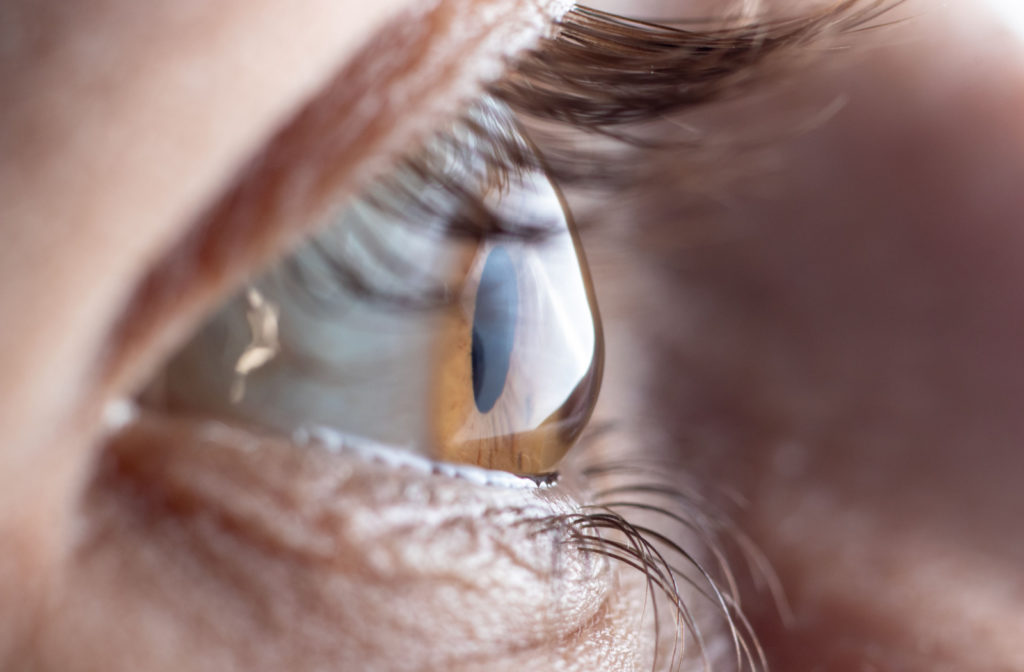Contact Lens Fittings at Cannon EyeCare
Personalized. Comfortable. Clear Vision.
Getting fit for contact lenses isn’t one-size-fits-all. At Cannon EyeCare, our doctors take the time to understand your lifestyle, eye health, and vision goals so we can match you with lenses that fit comfortably and help you see clearly—every day.
Whether you’re trying contact lenses for the first time or updating your prescription, we make the process easy, safe, and tailored to you.

Cannon EyeCare will set you up for success
Starting with an exam, we make it easy to wear and reorder your lenses:
If you have vision insurance, just email us—we’ll handle the ordering for you and apply your benefits directly. Lenses can ship to your home, your office, or either of our Seattle locations
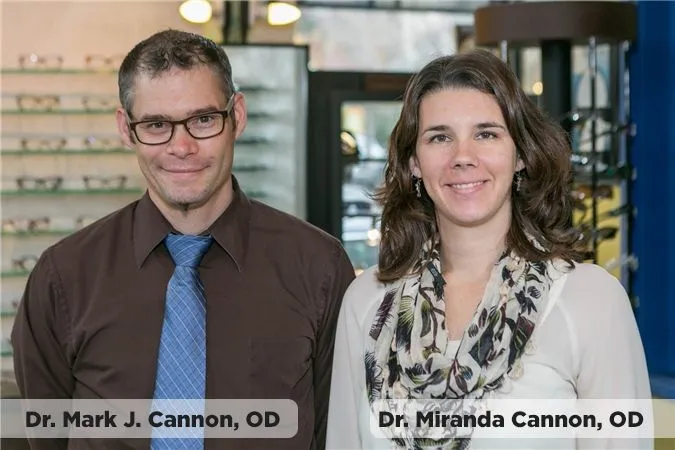
Start with an Exam
A contact lens exam will provide you with a comprehensive eye exam (all the health checks described in the Eyeglass Exams), plus a contact lens fitting. This exam will result in a contact lens prescription (allowing you to buy contacts).
Washington state law requires that all patients have their eye health checked before being fit in contact lenses, so it is not legal (or safe) to do a contact lens fitting alone without an eye exam. This regulation is really there to keep you, the patient, safe. The goal here is to ensure that the eyes are healthy enough to wear contact lenses.
✨ Contact Us for an Appointment Today
If you are considering contact lenses, our team at Cannon EyeCare in Seattle, WA, is happy to help. To schedule your exam, contact our office at (206) 448-7739 today. You can also browse our website to find out about our services or visit us in person. When you are in the Seattle Metro and looking for an “optometrist near me”, we look forward to assisting you!
Want to Learn More?
Matching the Right Lenses to Your Prescription
Your glasses prescription plays a major role in how contacts will work for you. Here’s how we tailor fits:
By understanding your prescription and vision goals, we select lenses that maximize both clarity and comfort.

We Prioritize Your Eye Health
Sometimes, underlying conditions need attention first, such as:
By addressing these issues early, we set you up for long-term comfort and clear vision in contacts.
Training for Young Wearers
We generally start training young patients to wear contacts at about age 13 for ladies and age 14 for boys. This is largely due to the need to bring a lot of responsibility and good hygiene practices to the table. A lack of scrupulous hygiene or responsibility can seriously compromise ocular health – which nobody wants. That being said, some younger patients are highly motivated/ and mature. Some patients as young as 9 have been very successful learning how to insert & remove (and wear) their contacts after being trained by our doctors one on one.
Strategies for Presbyopia (40+)
After age 40 we all start to lose the ability to adjust our focus for near work. This can lead to many contact lens patients getting frustrated, trying reading glasses over top, and then dropping out of contact lens wear by age 45. After all, if you have to wear OTC (over the counter) reading glasses most of the day over your contacts most of the day, why not just wear progressive glasses and skip the contacts?
Nowadays, we have strategies that allow a workaround. Depending on your glasses prescription, you may be able to wear monovision or multifocal contacts.These strategies do have some compromise (they don’t actually make your eyes younger), yet we are really good at these fits. Our doctors will probably take the time to talk to you about the 80% rule:
“If you’re able to see 80% of what you want to see without readers…and are happy with your contacts 80% of the time, that’s a successful multifocal fit.” We strive to surpass 80% satisfaction on every fit.
Many patients over 40 even end up with a dual Rx: distance only for things like tennis or skiing, and multifocals or monovision lenses so you can function in the restaurant afterward.
We Learn About Your Lifestyle
Everyone wears contact lenses for different reasons. During your fitting, our doctors will talk with you about how you plan to use them so we can find the best option for your needs:
-
🏃 Sports and activities – Running, tennis, or cycling without worrying about rain spots or slipping glasses.
-
💃 Special occasions – Dates, weddings, or events where you’d prefer not to wear glasses.
-
👓 Everyday wear – Making contacts your “plan A,” with glasses as backup.
-
🎿 Occasional use – Seasonal activities like downhill skiing or vacations.
These conversations help us select the most comfortable lens design and wearing schedule for your life.
What to Expect at Your Appointment
Using Insurance?
We are in network with the major local health insurance companies. Cannon EyeCare does not accept any 3rd party vision plans such as VSP, Davis, or EyeMed due to unreasonable contractual stipulations.
Insurance We Take

Premera Blue Cross

Medicare

Regence Blue Shield

Regence Group Administrators

HMA: Health Management Associates

Kaiser Permanente’s PPO plans

Bridgespan

Asuris

Out of state BC/Blue Shield (routine vision exams typically not covered)
Insurance We Don’t Take

Cigna

Aetna

First Choice Health

Medicaid

Apple Health/Molina
Book Your Contact Lens Fitting Today
The right contact lenses can transform how you see and live every day.
At Cannon EyeCare, our experienced optometrists combine medical expertise, personalized fittings, and modern lens technology to give you the best possible contact lens experience.
👉 Schedule your contact lens fitting appointment today and see the difference.
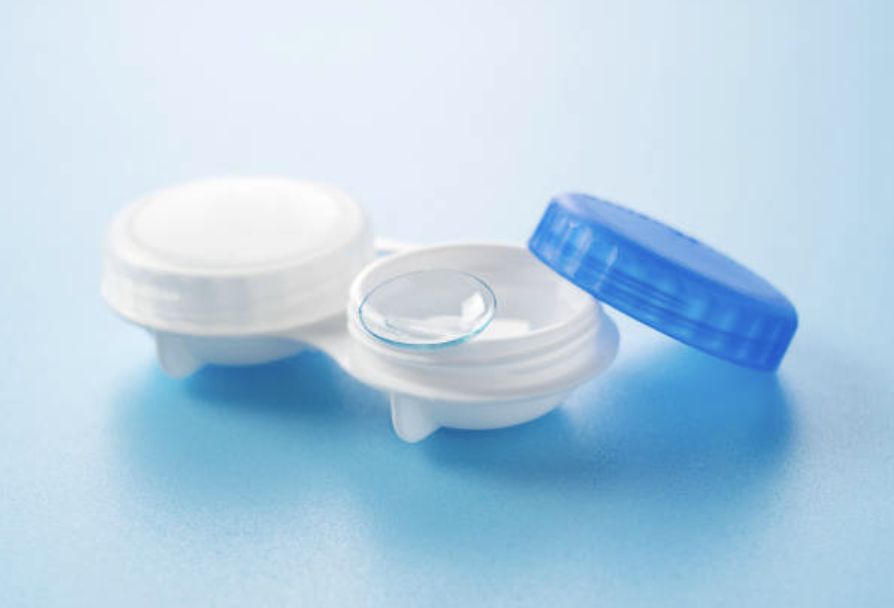
Common Contact Lenses FAQs
-
Why is a contact lens exam required
Washington state law mandates a comprehensive eye health exam before contact lens fittings to ensure your eyes are healthy enough for lenses. This prevents complications like corneal damage or infections, prioritizing patient safety.
-
How much does a contact lens exam cost in Seattle?
-
What’s the difference between monovision and multifocal contacts?
-
Can children wear contact lenses in Seattle?
-
How do I prepare for a contact lens exam?
-
Will insurance cover my contact lens exam?
-
What types of contact lenses are available?
-
Why choose multifocal contacts over glasses?
-
How often do I need a contact lens exam?
-
Where can I get a contact lens exam in Seattle?
-
What tests are done during a contact lens exam?
-
Can I wear contact lenses without a fitting?
-
What if my eyes feel dry with contact lenses?
-
Is it normal to find inserting contacts hard at first?

